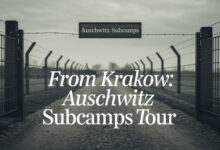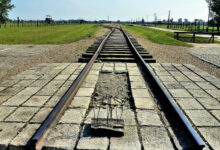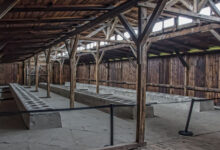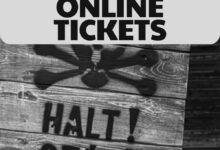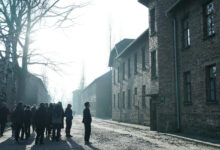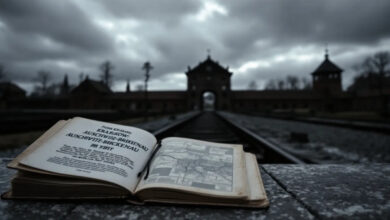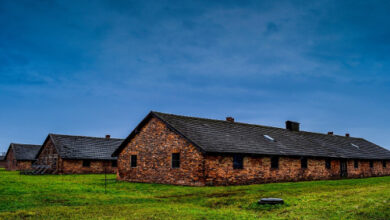Auschwitz Birkenau English Guided Tour
Auschwitz-Birkenau: Experience History with an English Guided Tour
Visiting Auschwitz-Birkenau is a profound experience that offers insight into one of history’s darkest chapters. The Auschwitz Birkenau English guided tour provides a comprehensive look at both Auschwitz I and Auschwitz II-Birkenau camps. You’ll gain a deeper understanding of the Holocaust through expert narration and historical context.
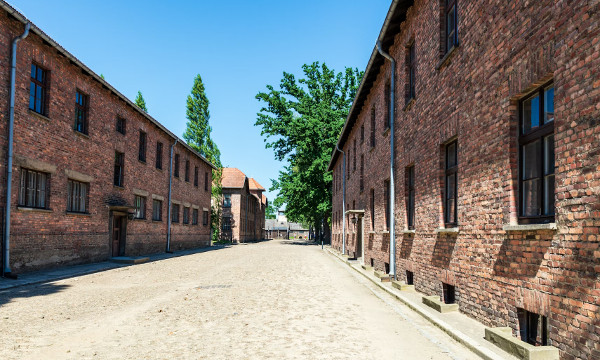
The tour typically lasts about 3.5 hours and includes headsets to ensure you can hear your guide clearly. You’ll explore the main sites, exhibitions, and preserved buildings that stand as solemn reminders of the atrocities committed there.
It’s best to book Auschwitz Birkenau English Guided Tour well in advance, as spots fill up quickly. Tours run throughout the day, with English options available from early morning until late afternoon. This allows you to choose a time that fits your schedule and preferences.
Auschwitz Birkenau English Guided Pre-Tour Essentials
Before visiting Auschwitz-Birkenau, there are several important steps to take. Proper planning ensures a smooth and respectful experience at this significant historical site.

Booking and Tickets
Book your tickets well in advance through visit.auschwitz.org. Choose between guided tours for individuals or groups. English tours run frequently throughout the day. Prices include admission to both Auschwitz I and Auschwitz II-Birkenau camps, plus a guide and headset rental.
Consider the following options:
- General tour (3.5 hours)
- Study tour (6 hours or two 3-hour sessions)
- Shorter tour before closing (2.5 hours)
Keep your booking confirmation email handy. If your plans change, check the cancellation policy. Some Auschwitz English guided tour tickets offer free cancellation with a full refund if cancelled within a certain timeframe.
Meeting Point and Times
Arrive at least 30 minutes before your tour starts. The meeting point is typically at the main entrance of Auschwitz I. Look for signs or ask staff for directions to the correct gathering area for English-language tours.
Tour times vary by season. In peak months, tours begin as early as 8:30 am and run until late afternoon. Off-peak seasons like January, February or March may have fewer time slots available.
Double-check your specific tour time and date on your booking confirmation.
Identification and Security
Bring a valid passport or government-issued ID. Security checks are strict, and you’ll need to show identification matching your ticket.
Items to leave behind:
- Large bags or backpacks
- Food and drinks
- Tripods or professional camera equipment

Security screening is similar to airport procedures. Expect bag checks and metal detectors. Allow extra time for this process, especially during busy periods. Read also our KrakowTOP guide Auschwitz: What to Expect During Your Visit
Transportation Options
Plan your journey to Auschwitz carefully. The museum is about 70 km west of Krakow.
Public Transport:
- Buses from Krakow main bus station (2-3 hours)
- Trains to Oświęcim station, then a short taxi ride
Organised Tours:
- Many companies offer transport and guided tours from Krakow
- An English-speaking Auschwitz guided tour often includes hotel pickup and drop-off.
Self-Drive:
- Car parks are available at both Auschwitz I and Birkenau
- Journey takes about 1.5 hours from Krakow
A free shuttle bus runs between Auschwitz I and Birkenau for visitors on guided tours. Check the timetable upon arrival to plan your return trip.
Auschwitz English Guided Tour Experience
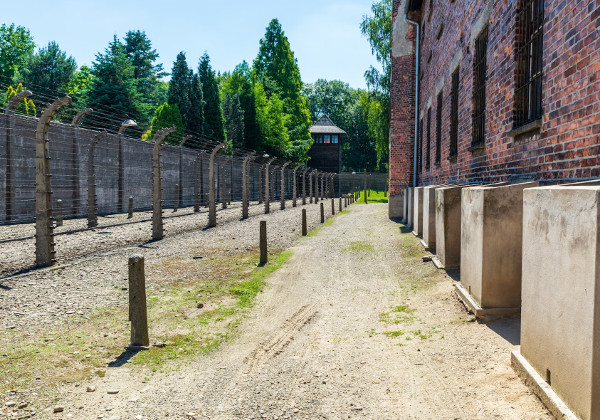
English-guided tours provide a structured and informative visit to Auschwitz-Birkenau. You’ll gain deeper insights into the camp’s history and significance through expert narration and carefully planned routes.
The Role of the Tour Guide
Your guide serves as an educator, offering historical context and personal stories. They’ll lead you through key areas, explaining exhibits and artefacts.

Guides are trained to handle sensitive topics with care and respect. They’ll answer your questions and provide a balanced perspective on the camp’s complex history.
Your guide will use a headset system, ensuring you can hear clearly even in crowded areas. This allows for a more intimate experience as you move through the site.
Languages Offered for Auschwitz-Birkenau Guided Tours
Tours are available in several languages to accommodate international visitors. English tours run frequently, starting from 8:30 am and continuing throughout the day until 4:30 pm. You can also find tours in Polish, French, German, Italian, and Spanish.
During peak months like July and August, more language options may be available like Czech or Slovak guided tours. It’s best to book your preferred language tour in advance, especially in busy periods.

Auschwitz Birkenau English Guided Tour Itinerary
Your tour will cover both Auschwitz I and Auschwitz II-Birkenau camps. The standard tour lasts about 3.5 hours.
You’ll start at Auschwitz I, exploring the museum exhibits and preserved buildings. Key stops include the infamous ‘Arbeit Macht Frei’ gate and prisoner barracks.

Next, you’ll travel to Birkenau, the larger camp complex. Here, you’ll see the railway tracks, selection platform, and remnants of gas chambers.

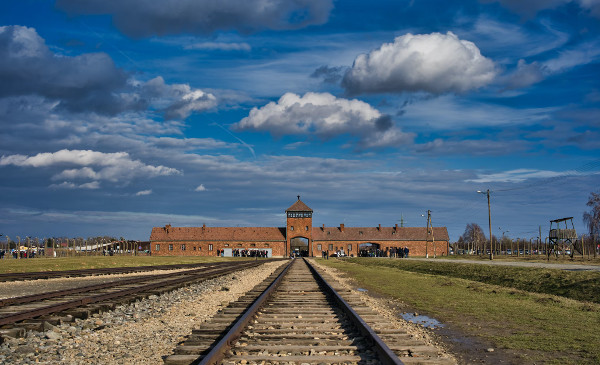
The tour provides a comprehensive overview of the camp’s layout and functions. Your guide will share stories of prisoners and explain the camp’s role in the Holocaust.
Historical Context of Auschwitz-Birkenau
Auschwitz-Birkenau was a Nazi concentration and extermination camp that became a symbol of the Holocaust. It played a central role in the genocide of European Jews and other groups during World War II.
Understanding the Holocaust
The Holocaust was the systematic murder of six million Jews by Nazi Germany and its collaborators. Auschwitz-Birkenau was the largest and deadliest camp in this network.

The camp opened in 1940 in occupied Poland. At first, it held Polish political prisoners. Later, it became a key site for the “Final Solution” – the Nazi plan to kill all Jews.
From 1942, trains brought Jews from across Europe to Auschwitz. Most were sent straight to gas chambers upon arrival. Others were forced to work in brutal conditions.
Over 1.1 million people died at Auschwitz-Birkenau. About 90% of them were Jews.
Importance of the Memorial and Museum
Today, Auschwitz-Birkenau is a museum and memorial. It helps people learn about the Holocaust and remember its victims.
You can see preserved buildings, ruins, and artefacts at the site. These include gas chambers, crematoria, and prisoners’ belongings.

The museum offers guided tours and educational programmes. These help visitors understand what happened at Auschwitz.
Visiting Auschwitz is often an emotional experience. It shows the scale of Nazi crimes and honours those who suffered there. Read also KrakowTOP articles Why Visit Auschwitz? and Why Auschwitz is a must-see?
Survivors’ Stories
Survivor accounts are crucial for understanding Auschwitz. They offer personal insights into life and death at the camp.
Many survivors have shared their experiences through books, interviews, and testimonies. These stories reveal the daily horrors of Auschwitz.
Survivors describe extreme hunger, forced labour, and constant fear. They tell of separated families and lost loved ones.
Some speak of small acts of kindness or resistance that helped them survive. Others recount the trauma that stayed with them long after liberation.
These stories remind us of the human impact of the Holocaust. They help keep the memory of Auschwitz alive for future generations.
Respecting the Site
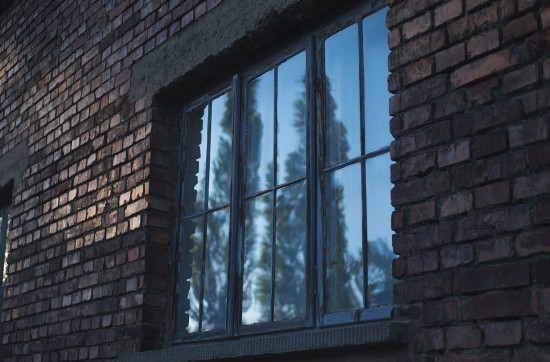
Visiting Auschwitz-Birkenau is a profound experience that requires respect and solemnity. Your behaviour and attitude can greatly impact the experience for yourself and others.
Dos and Don’ts
Do dress appropriately in modest clothing that covers your shoulders and knees. Avoid wearing shorts, sleeveless tops, or clothing with offensive slogans.
Don’t take selfies or pose for photos in front of exhibits. Photography is allowed in most areas, but be mindful of others and avoid using flash.
Do remain quiet and attentive during the tour. Listen carefully to your guide and avoid chatting or making phone calls.
Don’t eat, drink, or smoke on the grounds. There are designated areas for breaks outside the camp.
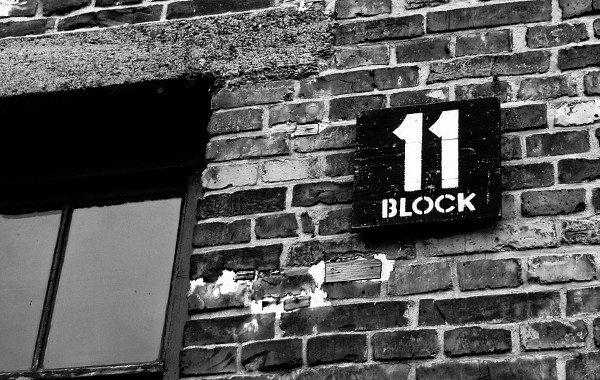
Do ask questions, but wait for appropriate moments. Your guide will usually indicate when it’s suitable to ask questions.
Reflection and Conduct
You may feel a range of emotions during the tour. It’s normal to feel upset, angry, or overwhelmed.
Take time to reflect on what you’re seeing and hearing. The experience can be emotionally challenging, so be prepared.
Follow your guide’s instructions closely. They’ll provide valuable context and ensure you stay within permitted areas.
Be considerate of other visitors. Some may be descendants of survivors or victims, so maintain a respectful demeanour.
Consider making a donation to help preserve the site. Your contribution supports ongoing education and remembrance efforts.
Logistical Information about Auschwitz Birkenau English Guided Tour

Tours of Auschwitz-Birkenau offer various options to suit different needs. You can choose from guided tours, study tours, and online tours. Prices and durations vary depending on the type of tour you select.
Local Amenities
You’ll find vending machines on-site for quick snacks and drinks. It’s wise to bring a packed lunch or lunch box, as food options are limited. Several pickup locations are available if you’re joining a tour with transport, including Wielopole and Starowiślna.
Round-trip transport is often included in guided tour packages. This can be especially helpful if you’re staying at a nearby hotel. Check the tour provider’s website for a list of pickup points and times. Read also KrakowTOP articles 6 Best-Rated Guided Tours of Auschwitz and Complete Guide to Visiting Auschwitz
Accessibility and Facilities
The Auschwitz-Birkenau Memorial and Museum strives to be wheelchair accessible. Many areas of the site can be visited by wheelchair users, but some parts may have limited access due to the historical nature of the buildings.

Guide-educators lead tours in various languages, including English, German, Polish, Spanish, Russian, and Slovak. They use multimedia materials and archival photographs to enhance your understanding of the site’s history.
Headsets are provided for English guided tours to ensure you can hear the guide clearly. This is particularly useful in crowded areas or when touring the prisoner barracks.
Frequently Asked Questions
Planning a visit to Auschwitz-Birkenau involves many details. Here are answers to common questions about tours, tickets, and timings for this important historical site.
How much does an English-guided tour of Auschwitz-Birkenau cost?
The price for an English-guided tour of Auschwitz-Birkenau varies. It typically includes entry to both camps, a guide, and headset rental. Prices range from about £20 to £50 per person, depending on the tour provider and package.
Some tours also offer transport from nearby cities like Krakow, which can increase the cost.
Are there tour packages available for visiting Auschwitz-Birkenau?
Yes, many tour packages are available for visiting Auschwitz-Birkenau. These often include:
- Round-trip transport from Krakow
- Entry tickets
- English-speaking guide
- Headset rental
Some packages offer additional stops at other nearby sites or lunch options.

How can one obtain tickets to Auschwitz without a guided tour?
You can book entry cards for individual visits without a guide on the official Auschwitz-Birkenau website. Go to visit.auschwitz.org and look for the “online individual visit” section.
Remember that during peak season, tickets may sell out quickly. It’s best to book well in advance.
Is it possible to secure a tour guide upon arrival at Auschwitz?
It’s not recommended to try and secure a tour guide upon arrival. Tours often fill up, especially in busy periods.
Booking in advance ensures you’ll have a guide and helps you plan your visit more effectively.
What is the duration of a typical visit to both Auschwitz and Birkenau?
A typical guided tour of both Auschwitz and Birkenau lasts about 3.5 hours. This includes:
Start Planning Your Krakow Trip Now!
- Unsure where to stay in Krakow? Discover top-rated Old Town and Kazimierz hotels with Booking.com.
- Book your airport transfer now and enjoy a hassle-free ride directly to your hotel. Driver will meet you at John Paul II International Airport Kraków–Balice.
- Take a Tour of Auschwitz. Arrange a visit to the Auschwitz-Birkenau Memorial and Museum to pay tribute and learn about this significant historical site.
⚠️ EASTER BOOKING ALERT: Auschwitz tours are filling rapidly for the holiday period. Secure your visit now to guarantee your preferred date and time slot. Last-minute availability cannot be guaranteed during this peak season. Due to high demand during Easter, it’s strongly recommended to book your tickets and tour to Auschwitz well in advance to secure your preferred dates and times! 🔖
- Explore the Fascinating Wieliczka Salt Mine! Book your guided tour today. These tours are very popular, so book early to avoid disappointment and ensure your spot.
- Looking for ideas? Check out our KrakowTOP.org recommended itineraries, including the famous Christmas Market, holiday events, and must-see Krakow attractions like Wawel Castle, Oskar Schindler’s Factory and St. Mary’s Basilica.
- Approximately 2 hours at Auschwitz I
- About 1.5 hours at Birkenau
The Museum provides transport between the two sites for visitors on guided tours.
At what times are English-guided tours of Auschwitz available?
English-guided tours of Auschwitz are available throughout the day. They typically start from early morning until late afternoon.
Exact times can vary based on the season and visitor numbers. It’s best to check the official website or your tour provider for specific timings.
